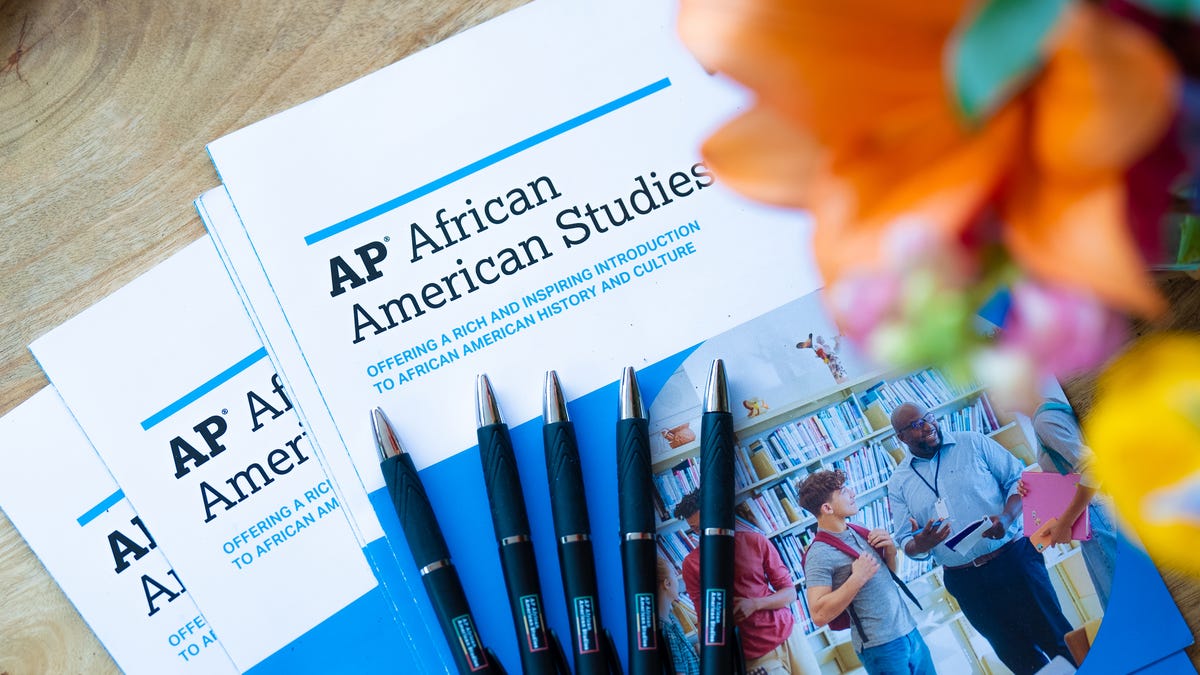Massachusetts
Massachusetts Students Should Know, These Degrees Pay The Best

Whether you’re currently in college and searching for a major or heading off to college soon and don’t know what to study, this list of highest paying degrees might help you decide.
Although studying something you enjoy is usually the route students take, sometimes it’s hard to choose which field you enjoy the most.
Knowing what your degree could earn you once school ends, might be the deciding factor you need.
READ MORE: Highest Paying Jobs on the SouthCoast
While not every job in a certain field is guaranteed to score you a certain pay day, according to earnings data from the United States Census Bureau several fields offer pretty lofty average earnings here in Massachusetts.
Several are even over six-figures.
Of course science jobs are always in high demand, with matching high paychecks, and technology fields are booming as well. But in Massachusetts, one degree pays significantly more than others.
READ MORE: These Massachusetts’ Colleges Are Among America’s Most Expensive
Overall, the Census Bureau looked at 14 different college and universities degrees and compared these fields based on salary alone. The average pay day for these 14 degrees was an estimated $86,997.
So which fields came out on top?
Generally careers in the science fields pay best in Massachusetts, while careers in the arts and humanities pay the least. In particular, those considering a degree in visual and performing arts are least likely to be among top earners in the Bay State with a median pay of $64,102.
The following fields however can score you a big pay day when you’re ready to find that first full time job after college.
Massachusetts’ Highest Paying Bachelor Degrees
Ready to chose a college major? Want to try and score the biggest paycheck possible after school is over? Then these are the fields you may want to study.
The United States Census Bureau has ranked bachelor degrees by median earnings and these fields came out on top.
Gallery Credit: Nancy Hall
Top 35 Highest-Paying Jobs on the SouthCoast
Looking to start a new career or not sure which path to head down after high school? Here are the best paying jobs right here on the SouthCoast that could help you decide.
Gallery Credit: Nancy Hall
SouthCoast Teacher Salaries From Lowest to Highest
According to the most recent reports of teacher salaries across Massachusetts (for the year 2019-2020), several SouthCoast school district are among those that pay the best. So how much are the teachers in your school district averaging?
Gallery Credit: Nancy Hall

Massachusetts
Massachusetts State House working last minute to pass bills ahead of Wednesday deadline

BOSTON – The Massachusetts State House is typically quiet on Fridays but not this week, as state lawmakers work to push major pieces of legislation to the governor’s desk, including a possible return of Happy Hour.
“This place is going to be buzzing”
“I think for the next five days, this place is going to be buzzing,” State Sen. Barry Finegold told WBZ-TV from his Statehouse office. Buzzing with fellow legislators, lobbyists and stressed-out staffers racing to beat the Wednesday deadline. “We’re very hopeful that it’s going to get done.”
Republican State Rep. Marc Lombardo is frustrated by the procrastination, pointing to the House, Senate and corner office being dominated by Democrats. “It’s a tornado of activity that really doesn’t have to wait until the last week of July,” he said.
The House and Senate have until Wednesday to hammer out their differences on key bills. Bills that don’t get voted out of conference committee essentially “die” on Beacon Hill.
Finegold heads the Joint Economic Development Committee, working on a multi-billion-dollar package that could pave the way for a new soccer stadium in Everett for the New England Revolution.
Will Happy Hour come back to Massachusetts?
How about bringing Happy Hour back to Massachusetts?
“We’re hopeful to get that passed as well,” Finegold explained. “We do have a lot of younger people in our city and throughout Massachusetts and we want to do things that we think they’ll like.”
While Rep. Lombardo can see how this could help the economy, he’s not a fan of the last-minute rush to the finish line.
He said lawmakers are “expected to read bills very quickly as they come out of conference committee…hundreds of pages of documents and yet forced to get a vote because we’ve waited to the last moment to put things on the floor.”
Complex legislation, packed with all sorts of line items.
The CEO of Boston Pads is watching the housing bill closely as lawmakers debate whether or not to ban broker’s fees for renters.
“These agents spend a lot of timing calling all day. It’s not uncommon for them to show an apartment at eight or even nine o’clock at night,” said Demetrios Salpoglou.
It’s a vote that he said could have crippling impacts on the real estate industry in Massachusetts.
This is just a glimpse of the mad rush and closed-door negotiations at the State House.
“This is what it takes,” Finegold said. “We have to get things done.”
Massachusetts
Massachusetts city named among best places in America for families to live


A Massachusetts city has been named among the 50 best places in America for families to live in 2024.
In assembling its “50 Best Places to Live for Families 2024″ ranking, Fortune says it analyzed more than 2,000 cities and reviewed nearly 200 data categories across five main themes including education, resources for aging adults, general wellness, financial health, and livability.
“This ranking focused on the best places for families, many of whom are shouldering the responsibilities of raising their own children while caring for aging parents,” Fortune said of its methodology. “As the retirement dream is unraveling for many older adults who don’t want to leave the workforce or can’t afford to, finding a place to live that provides a strong job market has never been more critical.”
The cities and towns that made Fortune’s list are described as ones “where multigenerational families can thrive.”
Somerville cracked the top 15 on the list, checking in at No. 11. Other New England cities were recognized as well:
-
10. Portsmouth, New Hampshire
-
17. South Portland, Maine
-
29. South Burlington, Vermont
-
32. Stamford, Connecticut
-
47. Providence, Rhode Island
Silver Spring, Maryland, was named the very best city for families to live.
For more on Fortune’s ranking, click here.
Download the FREE Boston 25 News app for breaking news alerts.
Follow Boston 25 News on Facebook and Twitter. | Watch Boston 25 News NOW
Massachusetts
Meet the Massachusetts Olympians competing for Team USA

They’ll race in boats on the track and up walls. They’ll wield sticks, sabers, bows and oars and compete individually and on teams. There will be quite a few athletes with Massachusetts ties wearing red, white and blue in Friday’s Olympic Opening Ceremonies and in competition over the next two weeks in France.
To make this list, someone had to live in Massachusetts now or in the past and be competing in the 2024 Olympics. That includes going to college here and playing professional sports here.
Here’s who they are and what they’re doing:
Women’s Archery
From left archers Casey Kaufhold, Jennifer Mucino-Fernandez and Mackenzie Brown of the United States reacts during the women’s team competition against Russian Olympic Committee’s team at the 2020 Summer Olympics, Sunday, July 25, 2021, in Tokyo, Japan. (AP Photo/Alessandra Tarantino)AP
Jennifer Mucino-Fernandez — In 2016, the Brockton native watched Olympic archery from the Olympics in London on TV and set her sights on getting there herself. Twelve years later she’s set for her second trip to the games.
Women’s cycling
Kristen Faulkner — Faulkner, a native of Homer, Alaska who went to Phillips Andover, was a Harvard rower but turned to cycling upon graduation. She currently works in finance when she’s not on her bike representing her country.
Men’s Fencing

U.S. Eli Dershwitz celebrates after beating France’s Sebastien Patrice during the men’s team Sabre Bronze medal final at the Fencing World Championships in Milan, Italy, Friday, July 28, 2023. (AP Photo/Luca Bruno)AP
Eli Dershwitz — Will three times be the charm for this Harvard alum from Sherborn to win a medal? He’ll compete in men’s saber individual and team in his third Olympics.
Colin Heathcock — This Harvard freshman, who was born in China, will compete in saber.
Mitchell Saron — This Harvard alum took up fencing after seeing “Revenge of the Sith” and fencing was the closest he could get to light saber duels, which are not yet an Olympic event.
Filip Dolegiewicz — This Illinois native is also from Harvard and is competing in his first Olympics.
BetMGM BET UP TO $1,500! BONUS BET REFUND AFTER A LOSS
STATES: AZ, CO, IA, IL, IN, KS, LA, MD, MI, NJ, OH, PA, TN, VA. Visit BetMGM.com for Terms and Conditions. 21 years of age or older to wager. MA Only. New Customer Offer. All promotions are subject to qualification and eligibility requirements. Rewards issued as non-withdrawable bonus bets. Bonus bets expire 7 days from issuance. In Partnership with MGM Springfield. Play it smart from the start with GameSense. GameSenseMA.com. Gambling Problem? Call 1-800-327-5050 or visit gamblinghelplinema.org. US Promotional Offers not available in New York.
Women’s Fencing
Elizabeth Tartakovsky — This Harvard alum from New Jersey moved from ballet dancing to fencing.
Lauren Scruggs — This Queens, New York native and current Harvard senior will compete in foil in Paris.
Women’s Field Hockey

Alexandra Hammel of the United States, left, and Chile’s Manuela Urroz vie for the ball during a women’s field hockey semifinal match at the Pan American Games in Santiago, Chile, Thursday, Nov. 2, 2023. (AP Photo/Dolores Ochoa)AP
Ally Hammel — After the Americans missed the 2020 games, Team USA field hockey is back in the Olympics, partially due to the performance of Hammel, a Duxbury native and former Boston University star.
Men’s gymnastics

FILE – Fred Richard performs on the rings during the U.S. Gymnastics Championships, Saturday, Aug. 20, 2022, in Tampa, Fla. Simone Biles is bringing back her Gold Over America Tour this fall, with a twist. This time, the guys are invited too. (AP Photo/Mike Carlson, File)AP
Frederick Richard — Sports Illustrated picked this social media sensation from Stoughton to win the bronze medal in the men’s all-around.
Stephen Nedoroscik — The Worcester native and pommel horse specialist is headed to his first Olympics.
Women’s Rowing
Margaret Hedeman — After winning a silver medal in the 2023 Worlds, this Concord native and Yale alum will try to bring home a medal in the women’s eight.
Daisy Mazzio-Manson — This Yale alum from Wellesley, who won a silver in the 2023 World Championships, is headed to her first Olympics.
Regina Salmons – This Methuen native from Penn, who writes poetry in her spare time, will compete in the women’s eight.
Kristi Wagner — This 31-year-old native of Weston will make her second Olympic appearance in double sculls.
Olivia Coffey — The Harvard alum from Walkins Glen, New York will compete in her second Olympics, in the women’s eight. Her father Calvin Coffey, was a silver medalist in rowing in 1976 in Montreal.
Men’s Rowing
Henry Hollingsworth — The Dover native, who starred at Brown will be making his Olympic debut in the men’s eight.
Jacob Plihal — At 6-foot-10, he’s one of the tallest non-basketball players in the games. The 2018 Northeastern alum will row in single sculls. After appearing in the 2022 World Championships, this is his first Olympics.
Christian Tabash —The 2022 Harvard alum should be popular in the Olympic Village. When he’s not competing in the men’s eight, he’s conversational in five languages.
Clark Dean — The recent Harvard alum is headed to his second Olympics as part of the men’s eight.
Liam Corrigan — Not quite as tall as Plihal, Corrigan is a muscle machine at 6-foot-7. The Harvard alum from Old Lyme, Connecticut will row in the men’s four.
Pieter Quinton — The Portland, Oregon native who went to Harvard has been part of the U.S. National Team five times, but this is his first Olympics. He‘ll compete in the men’s eight.
Men’s Rugby

United States’ Madison Hughes passes the ball to teammate United States’ Make Unufe during the men’s Rugby Sevens Pool C match between the United States and Uruguay at the 2024 Summer Olympics, in the Stade de France, Thursday, July 25, 2024, in Saint-Denis, France. (AP Photo/Tsvangirayi Mukwazhi)AP
Madison Hughes — This 31-year-old Lancaster native lived part of his childhood in England before starring for Dartmouth. This will be his third Olympics as he’s chasing his first medal.
Women’s Rugby

Kristi Kirshe of the United States is tackled by Japan’s Haruka Hirotsu, in their women’s rugby sevens match at the 2020 Summer Olympics, Thursday, July 29, 2021 in Tokyo, Japan. (AP Photo/Shuji Kajiyama)AP
Kristi Kirshe — This is Olympics number two for Kirshe, a Franklin native. She played soccer at Williams College before transitioning to rugby where she’s been a key part of Team USA.
Men’s Sailing
David Liebenberg — The 32-year-old Californian who went to Tufts, is headed to his first Olympics despite considerable previous international experience.
Stu McNay — This will be Olympics No. 5 for McNay, who is still chasing his first medal. The 42-year-old, who’ll compete in dinghy, was born in Boston, grew up in Brookline and lives in Rhode Island.
Women’s Sailing
Erika Reineke — After four failed bids to make the Olympics, the 2017 Boston College graduate from Ft. Lauderdale qualified for Paris. She’ll compete in dinghy.
Shooting
Ada Korkhin — This could be the first of many Olympics for the 19-year-old Brookline, who goes to Ohio State. She’ll compete in the 25-meter air pistol.
Men’s Soccer

United States’ Miles Robinson (12) reacts during the men’s Group A soccer match between France and the United States at the Velodrome stadium, during the 2024 Summer Olympics, Wednesday, July 24, 2024, in Marseille, France. (AP Photo/Daniel Cole)AP
Miles Robinson — The 27-year-old from Arlington, who is likely to be on the USA World Cup roster in 2026 is one of the older leaders on the Olympic squad.
Women’s Soccer
Sam Coffey — Coffey stretches the Massachusetts connection a bit. The New York City native began her college career at Boston College but transferred to Penn State. Her father and sister are both sportswriters.
Men’s Sport Climbing

Jesse Grupper of the United States holds a United States flag after winning the gold medal of the men’s boulder lead climbing of the Pan American Games in Santiago, Chile, Monday, Oct. 23, 2023. (AP Photo/Esteban Felix)AP
Jesse Grupper — The New Jersey native, who graduated from Tufts in 2019, won gold at the Pan Am Games in 2023.
Women’s Artistic Swimming
Ruby Remati — A native of Andover and student at Ohio State, Remati is just 21 as she heads to her first Olympics.
Men’s Track and Field
Graham Blanks — If someone is from Athens, albeit Athens, Georgia, the Olympics has to be part of their destiny right? The Harvard track star will compete in the 5,000 meters.
Women’s Track and Field
Gabby Thomas wins a heat in the women’s 200-meter run during the U.S. Olympic track and field trials on Thursday, June 27, 2024, in Eugene. (AP Photo/Charlie Neibergall)AP
Gabby Thomas — The Harvard alum from Northampton has a chance to be one of the faces of this Olympics for Team USA. She has silver and bronze medals from 2020 already and is favored to win gold in the 200 meters.
Women’s Triathlon
Kirsten Kasper — The former running and swimming star at North Andover made the natural leap into triathlon. Now 32, she’s in her first Olympics after winning medals in the World Championships in 2016, 2017 and 2018.
Men’s Basketball (5-on-5)
Jayson Tatum, Jrue Holiday and Derek White — Can this Celtics trio earn rings and medals in the same summer? They’re favored to do so. This is White’s first Olympics and the second for both Tatum and Holiday. They’ll open Olympic play on Saturday morning against Serbia.
-

 World1 week ago
World1 week agoOne dead after car crashes into restaurant in Paris
-

 Midwest1 week ago
Midwest1 week agoMichigan rep posts video response to Stephen Colbert's joke about his RNC speech: 'Touché'
-

 News1 week ago
News1 week agoVideo: Young Republicans on Why Their Party Isn’t Reaching Gen Z (And What They Can Do About It)
-

 Movie Reviews1 week ago
Movie Reviews1 week agoMovie Review: A new generation drives into the storm in rousing ‘Twisters’
-

 News1 week ago
News1 week agoIn Milwaukee, Black Voters Struggle to Find a Home With Either Party
-

 Politics1 week ago
Politics1 week agoFox News Politics: The Call is Coming from Inside the House
-

 News1 week ago
News1 week agoVideo: J.D. Vance Accepts Vice-Presidential Nomination
-

 World1 week ago
World1 week agoTrump to take RNC stage for first speech since assassination attempt





















